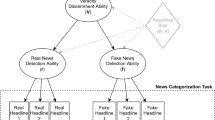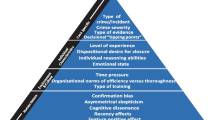Abstract
Jury nullification is a mechanism, and a defense, which allows the jury, as representatives of the community, to disregard both the law and the evidence and acquit defendants who have violated the letter, but not the spirit of the law. Should juries simply follow the law as articulated by the trial judge, or should they act as “conscience of the community,” and neglect the strict requirements of the law when it would lead to unjust or inequitable verdicts? The present study was aimed at providing empirical data for the following question: will the jury operate in a manner which is different than its normal functioning if given explicit nullification instructions? Three nullification instructins varying in explicitness as to nullification were combined with three criminal cases to yield a 3×3 factorial design. Forty-five six-person juries (270 subjects), were randomly assigned to the nine experimental groups. The results showed that juries given explicit nullification instructtions were more likely to vote guilty in a drunk driving case, but less likely to do so in a euthanasia case. The third case, which dealt with murder, did not show any differences due to instructions. Juries in receipt of nullification instructions spent less deliberation time on the evidence and more on defendant characteristics, attributions, and personal experiences.
Similar content being viewed by others
References
Alexander, J. (Ed.)A Brief Narration of the Case and Trial of John Peter Zenger. New York: Little, Brown, 1963.
Becker, B. C. July nullification: Can a jury be trusted?Trial, October 1980, 18–23.
Borgida, E. A process analysis approach to jury deliberation. Paper presented at Law & Society Meeting, Madison, Wisconsin, June 1980.
Horowitz, I. A. Juror selection: A comparison of two methods in several criminal cases.Journal of Applied Social Psychology, 1980,10, 1, 86–100.
Jacobsohn, G. J. The right to disagree: Judges, juries, and the administration of criminal justice in Maryland.Washington University Law Quarterly, 1976,571, 577–579.
Kadish, M. R., & Kadish, S. H.Discretion to Disobey. Stanford, California: Stanford University Press, 1973.
Kalven, H., & Zeisel, H..The American Jury. Boston: Little, Brown, 1966.
Rembar, C.The Law of the Land. New York: Simon & Schuster, 1980.
Severance, L. J., & Loftus, E. F. Improving the ability of jurors to comprehend and apply criminal jury instructions.Law and Society Review, 1982,17, 153–198.
Scheflin, A., & Van Dyke, J. Jury nullification: The contours of a controversy.Law and Contemporary Problems, 1980,43, 4, 52–115.
Scheflin, A. Jury nullification: The right to say no.University of Southern California Law Review, 1972,45, 168–192.
Sparf and Hansen v. United States 156 U.S. 51, 168. (1895).
Simson, G. Jury nullification in the American system: A skeptical view.Texas Law Review, 1976,488, 506–526.
Tachman, M. The persuasion process. Paper presented at Meeting of Law & Society Association, Madison, Wisconsin, June 1980.
United States v. Dougherty 473 F.2d, 1113, 1130–1137 (D.C. circuit). (1972).
Van Dyke, J., The Jury as a Political Institution.Catholic Law Review, 1970,16, 224–270.
Winer, B. J.Statistical Principles in Experimental Design. New York: McGraw-Hill, 1971.
Author information
Authors and Affiliations
Additional information
This research was supported by a grant from the University of Toledo Graduate Research Fund.
About this article
Cite this article
Horowitz, I.A. The effect of jury nullification instruction on verdicts and jury functioning in criminal trials. Law Hum Behav 9, 25–36 (1985). https://doi.org/10.1007/BF01044287
Issue Date:
DOI: https://doi.org/10.1007/BF01044287




